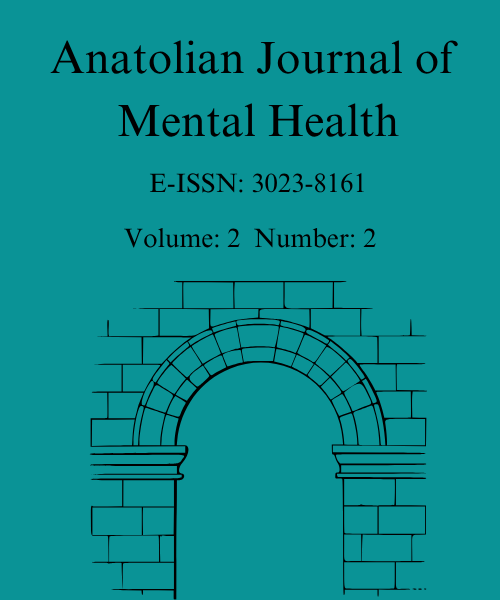Psychological phenomenon of «childfree» as a problem of modern youth
childlessness, psychological safety, "childfree" phenomenon, childbearing, reproductive behavior, demography, inclusive capitalism, technological structure.
DOI:
https://doi.org/10.5281/zenodo.17097887Keywords:
childlessness, psychological safety, "childfree" phenomenon, childbearing, reproductive behavior, demography, inclusive capitalism, technological structure.Abstract
This scientific publication presents the results of a study of value attitudes, biographical data, and mental state of individuals who consciously refuse reproductive behavior. The paper examines the individual psychological profile of people inclined to conscious childlessness (refusal to have a child). The authors analyze current studies related to the problem of "childfree." The main purpose of the study is to identify individual psychological characteristics of people who consciously take the position of refusing to have children. The objectives of the study are a theoretical analysis of the main current approaches to the problem of "childfree" (conscious childlessness) and conducting an empirical study to identify individual psychological characteristics of people who profess the "childfree" subculture. The main hypothesis is the assumption that people who take a conscious position of refusing to have children have individual psychological characteristics in the sphere of value orientations and have differences in mental state (mood, well-being, activity). The sample consisted of men and women aged 18 to 40 years (average age 29±1 years, 35 subjects, pilot study).
Methodology used. The main research methods were historical, sociological, statistical, analysis, and comparison. The research methods included: Morphological test of life values by V.F. Sopov and L.V. Karpushin (diagnostics of life values of personality, MTLV); Schwartz Value Survey; WAM Questionnaire; author's questionnaire (gender, age, profession, income level, presence of children, education level, position towards childfree), mathematical-statistical method - Kruskal-Wallis test.
Research results. The main conclusions of the study are the statement of the prevalence of the studied phenomenon; differences in activity, mood, well-being; high degree of tolerant attitude towards representatives of "childfree"; prevalence of subculture among "childless" students and people without permanent income; artificial inertia of "childfree." Among childfree supporters, personal opinions, views, and beliefs predominate over conventional ones compared to those who raise a child and are not childfree supporters. Orientation towards constructive relationships, realization of social roles, and expansion of interpersonal connections are the main needs of subjects who raise a child. Weakly expressed statistical tendencies towards egoism and hedonism in people who consciously refuse to reproduce.
References
Bicharova, M.M. and Morozova, O.V. (2016). Ideologiya chaildfri i ee vliyanie na sovremennuyu sistemu semeinykh tsennostei [Childfree ideology and its influence on the modern system of family values]. Global'nyi nauchnyi potentsial = Global scientific potential, 12(69), 7-10.
Bolshunova, T.V. (2018). Fenomen chaildfri: makrosotsiologicheskii analiz [Childfree phenomenon: macrosociological analysis] [Elektronnyi resurs]. Vestnik universiteta = Bulletin of the University, 4, 145-149. DOI: 10.26425/1816-4277-2018-4-145-149.
Cook, R.J. and Fathallah, M. (1996). Prodvizhenie reproduktivnykh prav za predely Kaira i Pekina [Advancing reproductive rights beyond Cairo and Beijing] [Elektronnyi resurs]. Mezhdunarodnye perspektivy planirovaniya sem'i = International perspectives on family planning, 22(3), 115-121. DOI: 10.2307/2950752.
Decree of the President of the Russian Federation of November 9, 2022 № 809 «On approval of the Fundamentals of State Policy for the Preservation and Strengthening of Traditional Russian Spiritual and Moral Values». SPS ConsultantPlus. [Electronic resource] http://www.consultant.ru.
Deulin, D.V., Petrov, V.E. and Artyushenko, A.B. (2023). Analiz pravovykh i sotsial'no-psikhologicheskikh aspektov fenomena «chaildfri» [Analysis of legal and socio-psychological aspects of the «childfree» phenomenon] [Elektronnyi resurs]. Prikladnaya psikhologiya i pedagogika = Applied psychology and pedagogy, 8(3), 31-44. DOI: 10.12737/2500-0543-2023-8-3-31-44.
Engels, F. (1984). The situation of the working class in England: According to own observations and reliable sources (5th ed.). Moscow: Progress.
Engels, F. (1989). Origin of the family, private property and the state: In connection with the research of Lewis G. Morgan. Moscow: Politizdat.
Gietel-Basten, S. and Yeung, A.S.W. (2023). Self-Definition and Evaluation of the Term “Childfree” Among Hong Kong Women. SAGE Open. https://doi.org/10.1177/21582440231198.
Halfina, R.R., Timchenko, T.V. and Safronova, E.V. (2018). Psikho-sotsial'nye prichiny razvitiya chaildfri v Rossii [Psycho-social reasons for the development of childfree in Russia]. Problemy sovremennogo pedagogicheskogo obrazovaniya = Problems of modern teacher education, 60(4), 475-478.
Han, M. (2023). Influence of Family Structure on Children’s Well-being – Challenges and Pathways to Promote Positive Development. SHS Web of Conferences, 180. DOI: 10.1051/shsconf/202318002008.
Leroux, M.-L., Pestieau, P. and Ponthière, G. (2022). Childlessness, childfreeness and compensation. Social Choice and Welfare, 59(2). DOI: 10.1007/s00355-021-01379-y.
Li, D. and Guo, X. (2023). The effect of the time parents spend with children on children's well-being. Frontiers in Psychology, 14. https://doi.org/10.3389/fpsyg.2023.1096128.
Morgan, L.G. (1934). Ancient society or a study of the lines of human progress from savagery through barbarism to civilization. Leningrad: Publishing House of the Institute of the Peoples of the North under the Central Executive Committee of the USSR.
Nam, T. (2020). Potential of students’ project work using the example of childfree phenomenon analysis. E3S Web of Conferences, 164, 12007. https://doi.org/10.1051/e3sconf/202016412007.
Obukhova, L.F. (1996). Child (age) psychology. Moscow: Russian Pedagogical Agency.
Schwab, K. and Malleret, T. (2020). *Covid-19: The Great Reset*. Forum Publishing. [Electronic resource] http://reparti.free.fr/schwab2020.pdf.
Tori, N.A., Sharif-Nia, H., Ghaffari, F., Behmanesh, F. and Pourreza, A. (2023). Effective factors on voluntary childlessness and one-child tendency from couples’ perspective: Compulsory childlessness or child-avoidance? Caspian Journal of Internal Medicine, 14(4), 656-667. DOI: 10.22088/cjim.14.4.656.
Downloads
Published
How to Cite
Issue
Section
License
Copyright (c) 2025 Anatolian Journal of Mental Health

This work is licensed under a Creative Commons Attribution 4.0 International License.





